War scatters people, forcing them to leave their homes, but it poses an even greater threat by attempting to tear the internal fabric of our identity. How can we maintain a connection with our heritage when the present is filled with pain? Where can we find support when the familiar world has been destroyed? On August 1, 2025, within the walls of Poltava Polytechnic (room 315-C), answers to these questions were sought through art, by creating a collective “Ornament of Unity”.
This meeting was a continuation of a series of events within the large-scale international Erasmus+ KA220-ADU project “TRUST” – Trauma of refugees in Europe: An approach through art therapy as a solidarity program for Ukraine war victims (Grant No. 2024-BE01-KA220-ADU-000257527).
The project title is decoded as follows:
TRUST
T – Trauma
R – Refugees
U – Ukraine
S – Solidarity
T – Therapy
The project is co-funded by the EU and led by the Centre Neuro Psychiatrique St-Martin from Belgium, in partnership with the National University “Yuri Kondratyuk Poltava Polytechnic” (Ukraine), Greek Carers Network EPIONI (Greece), Fondazione Don Luigi Di Liegro (Italy), Lekama Foundation (Luxembourg), EuroPlural Project (Portugal).
Under the thoughtful guidance of Associate Professors from the Department of Psychology and Pedagogy, Viktoriia Shevchuk and Maryna Teslenko, and the university's practical psychologist Olena Kryvenko, participants immersed themselves in a deep process of self-discovery through the language of Ukrainian culture.
The session began with an introductory game where participants chose colours corresponding to their mood and made minor marks with them on a large white canvas. Symbolising both uncertainty and a space for new possibilities, each participant left a fingerprint, choosing a colour that reflected their mood. This became the first step in creating a collective drawing – a silent dialogue where each dot was not just a mark but an expression of trust and presence in the “here and now”. In art therapy, finger painting is a powerful grounding tool that allows one to regain a sense of control over one's body and release internal tension through the sense of touch.
Gradually, a harmonious composition began to emerge from the seemingly chaotic dots. Stylised motifs of Ukrainian ornamentation blossomed on the canvas: flowers, viburnum berries (kalyna), and leaves – protective symbols that embody family warmth, the continuity of life, and a connection to one's homeland. For people whose sense of home had been disrupted, this process became an act of symbolically reclaiming it. Mothers and children wove not only colours but also their feelings into the drawing – love, support, and hope, creating a shared space of safety.
This process was intensely therapeutic. For the mothers, it was an island of calm, a chance to slow down and share the joy of creativity with their children, restoring the emotional bond that often suffers under the weight of stress. For the children, it was a space of freedom where their feelings could be expressed through colour and touch without judgment or limitations. The collective drawing transformed into a “family canvas”, where every fingerprint and every line was unique, yet together they created a unified whole. Thus, the Ukrainian ornament became a metaphor for a large family in which every person is a valuable and indispensable element.
Towards the end of the session, the conversation shifted to a deeper level of reflection. Participants spoke about the Petrykivka painting as the language of the female soul, which has passed down strength, tenderness, and a passion for life through generations. They delved into the history of Ukrainian embroidery, viewing it as a code of protection, memory, and love. It became clear that each pattern is not just beautiful but tells a whole story, and its colours have their psychological language. In the drawings and stories, parts of the soul that had long been without words came to life.
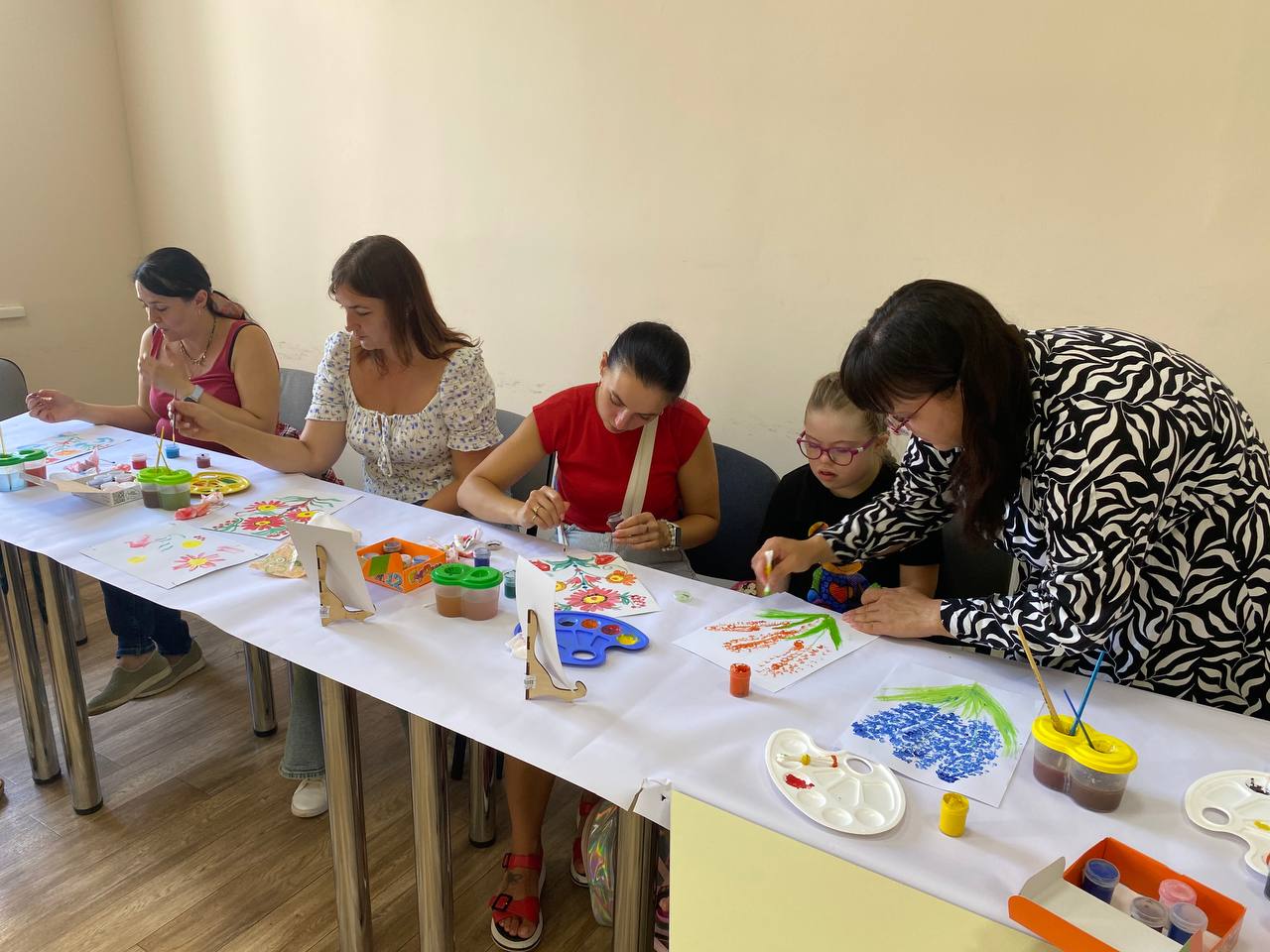
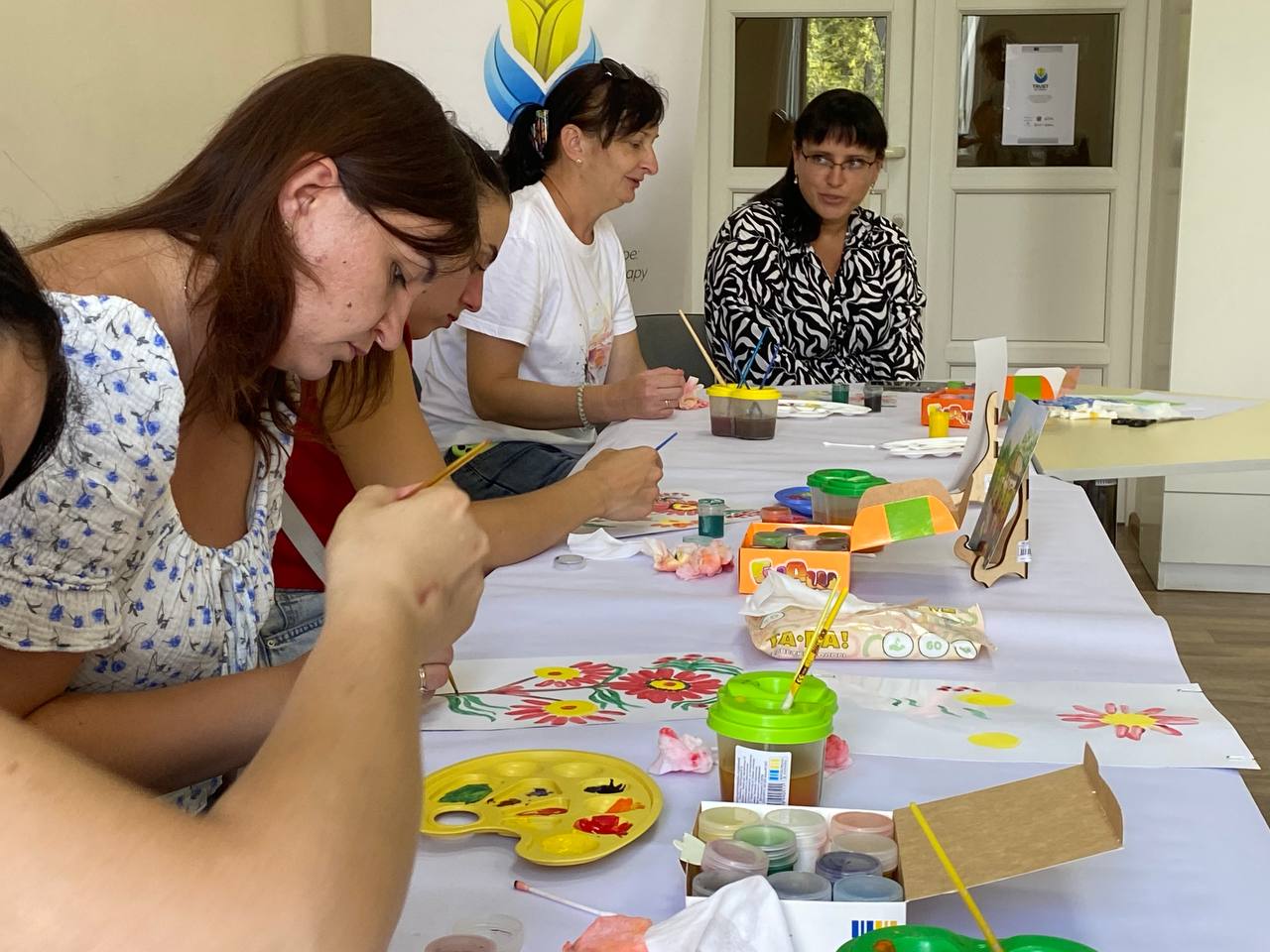
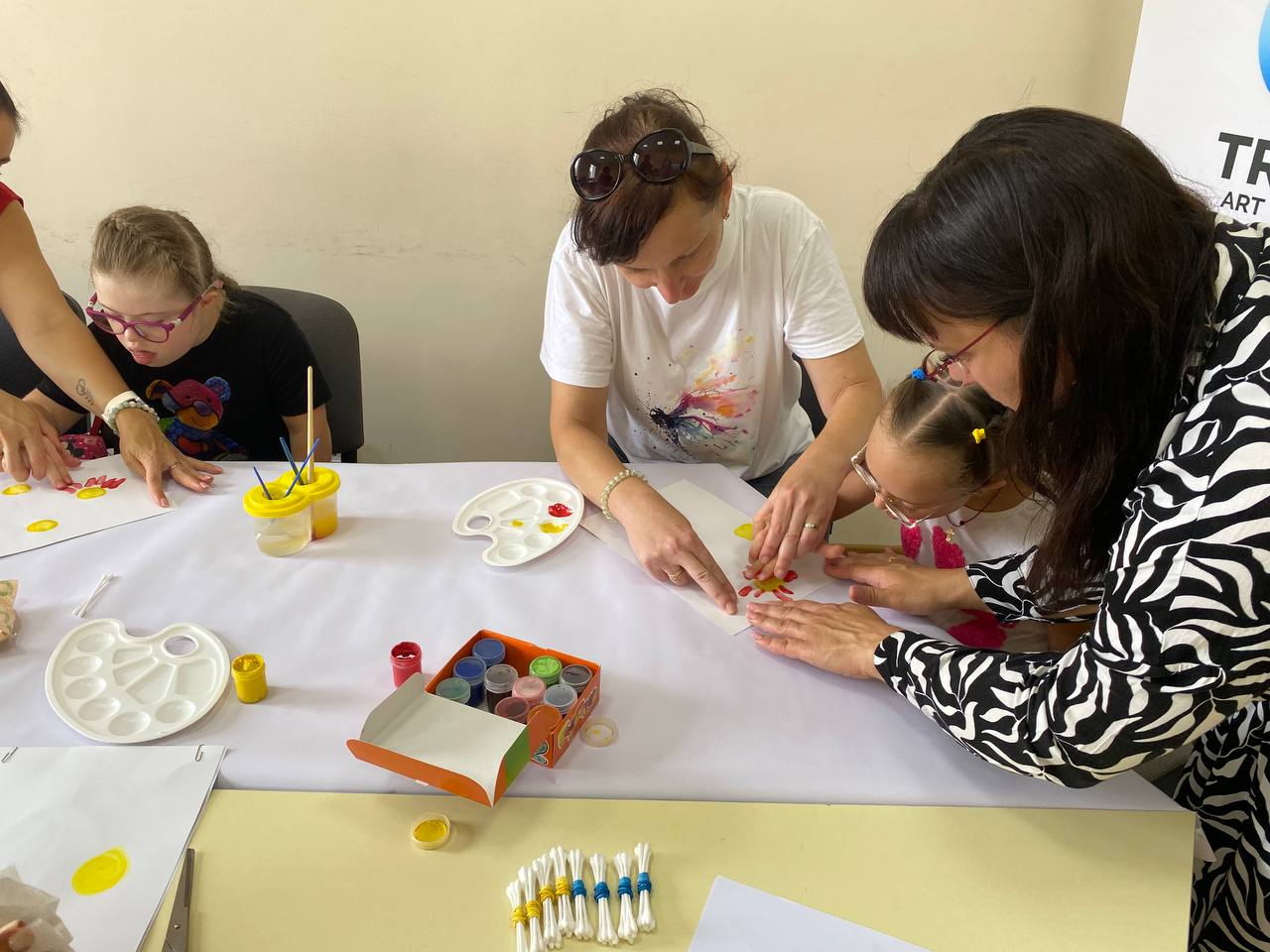
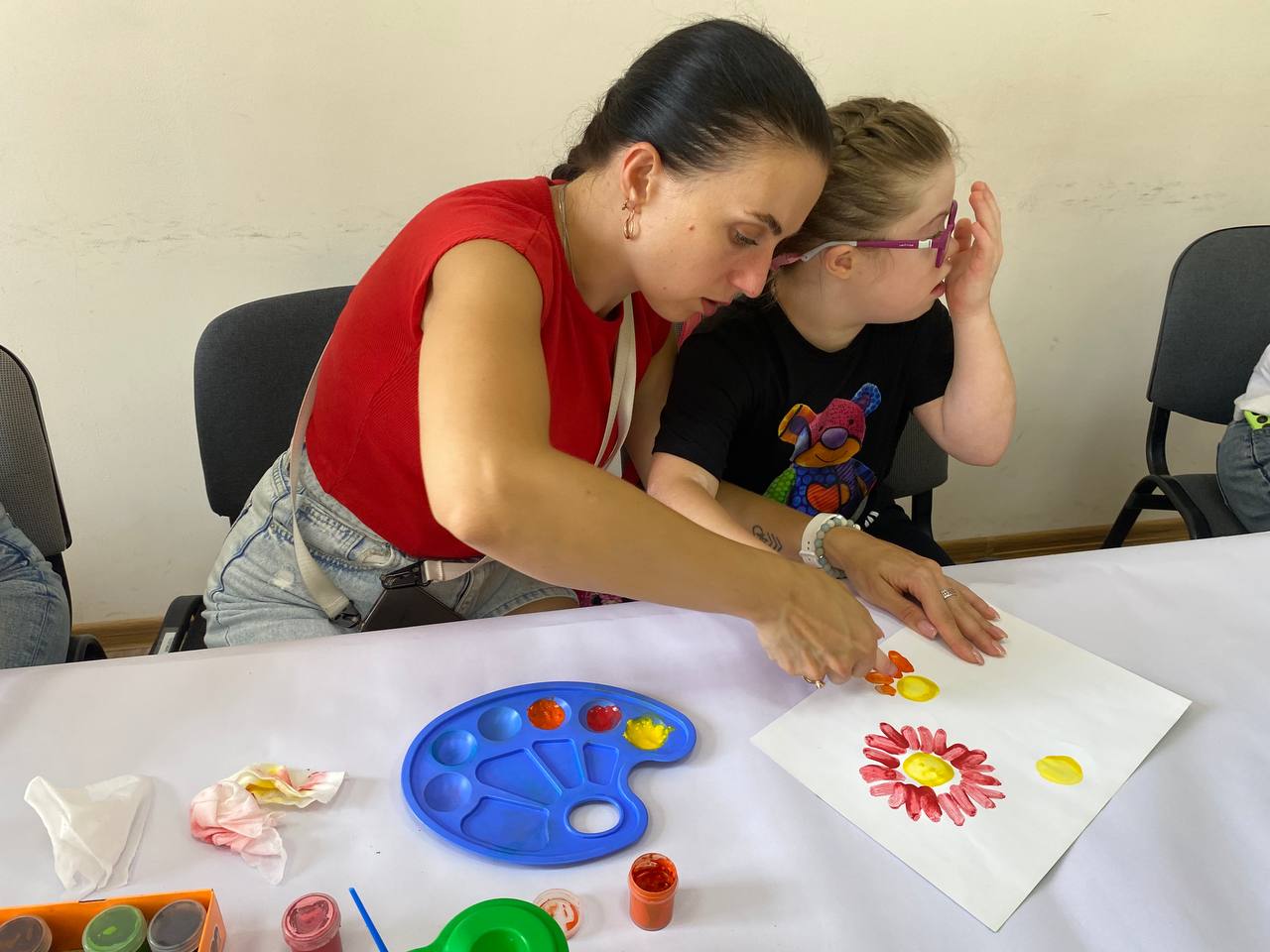
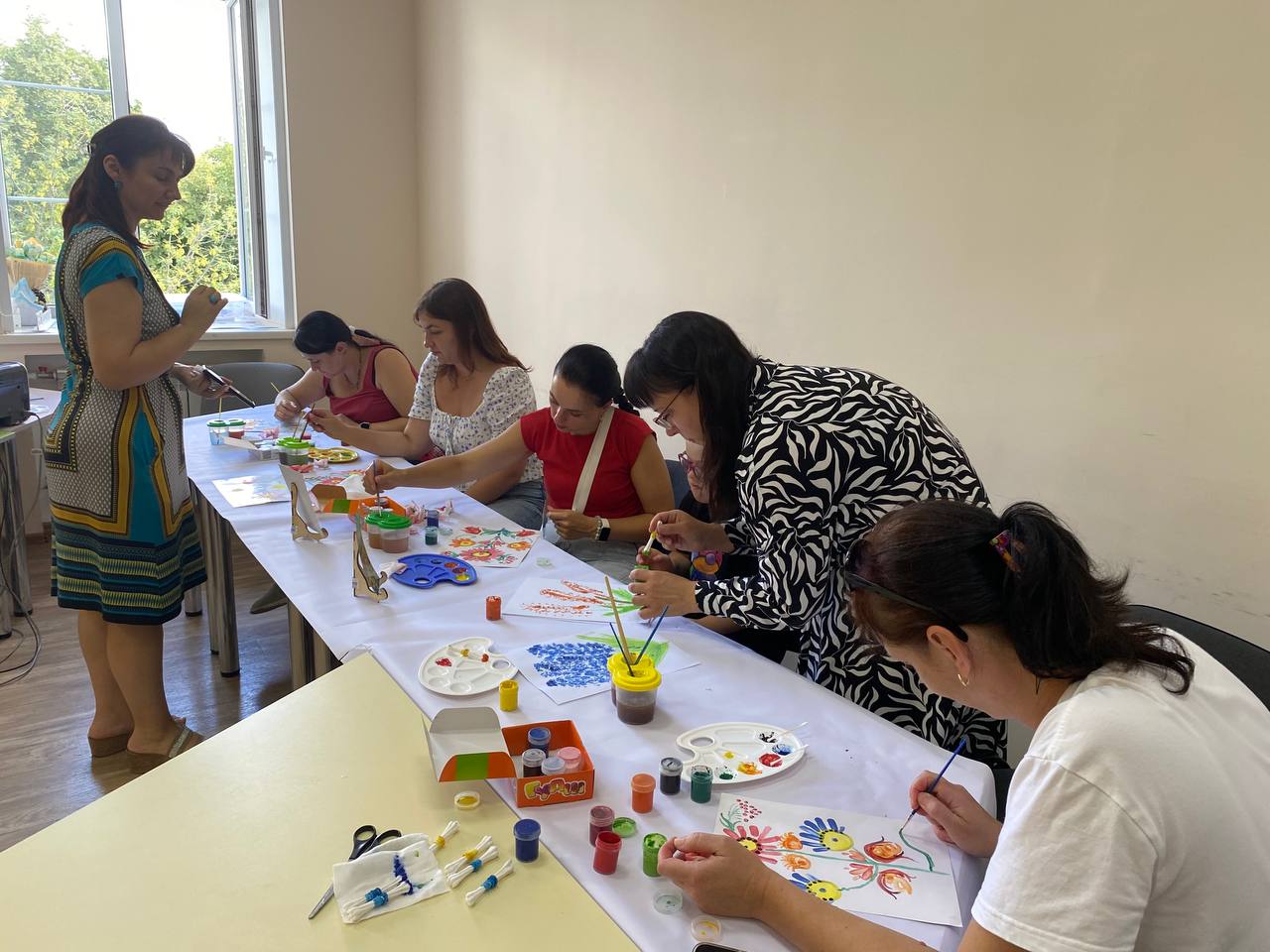
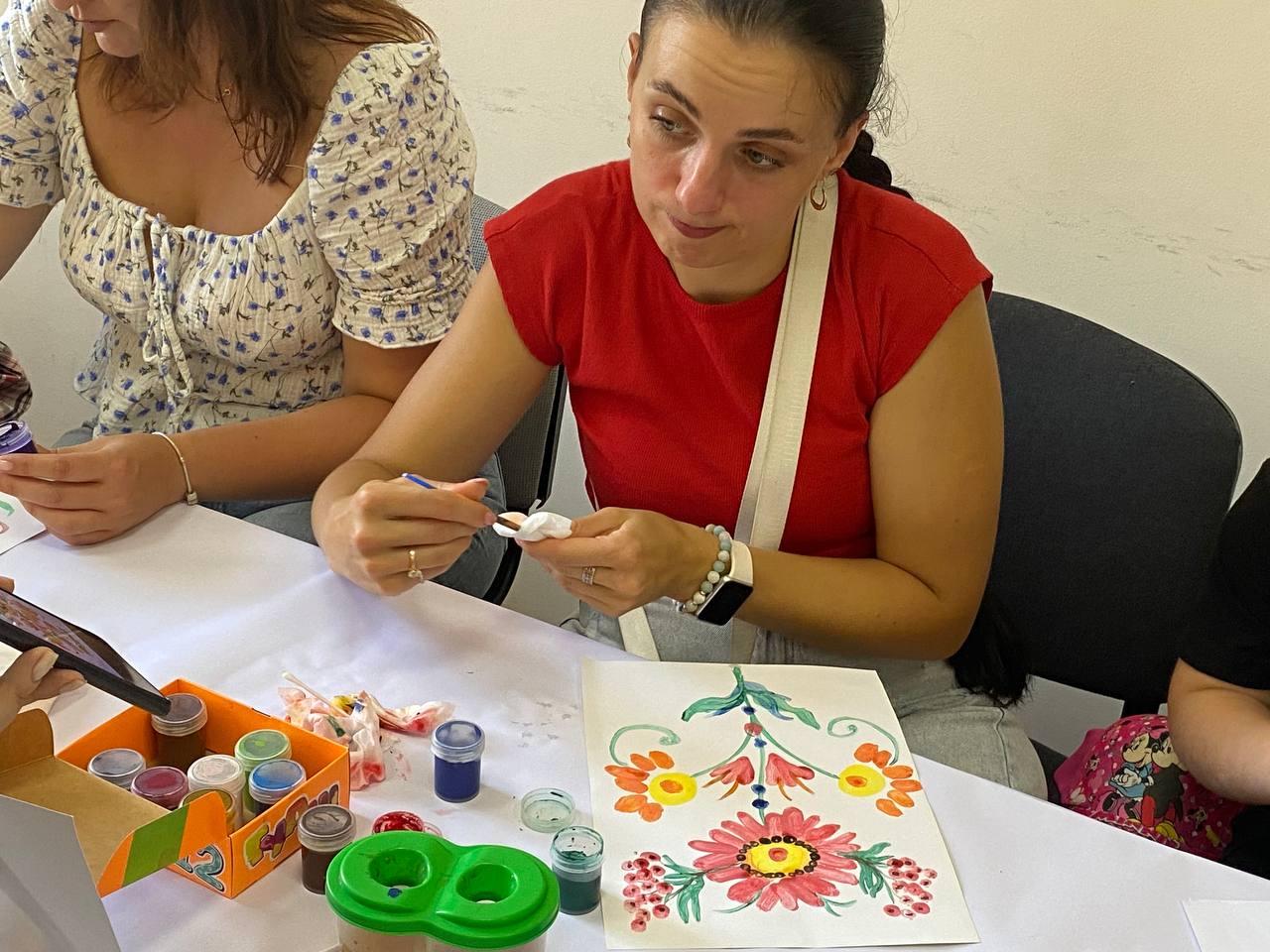
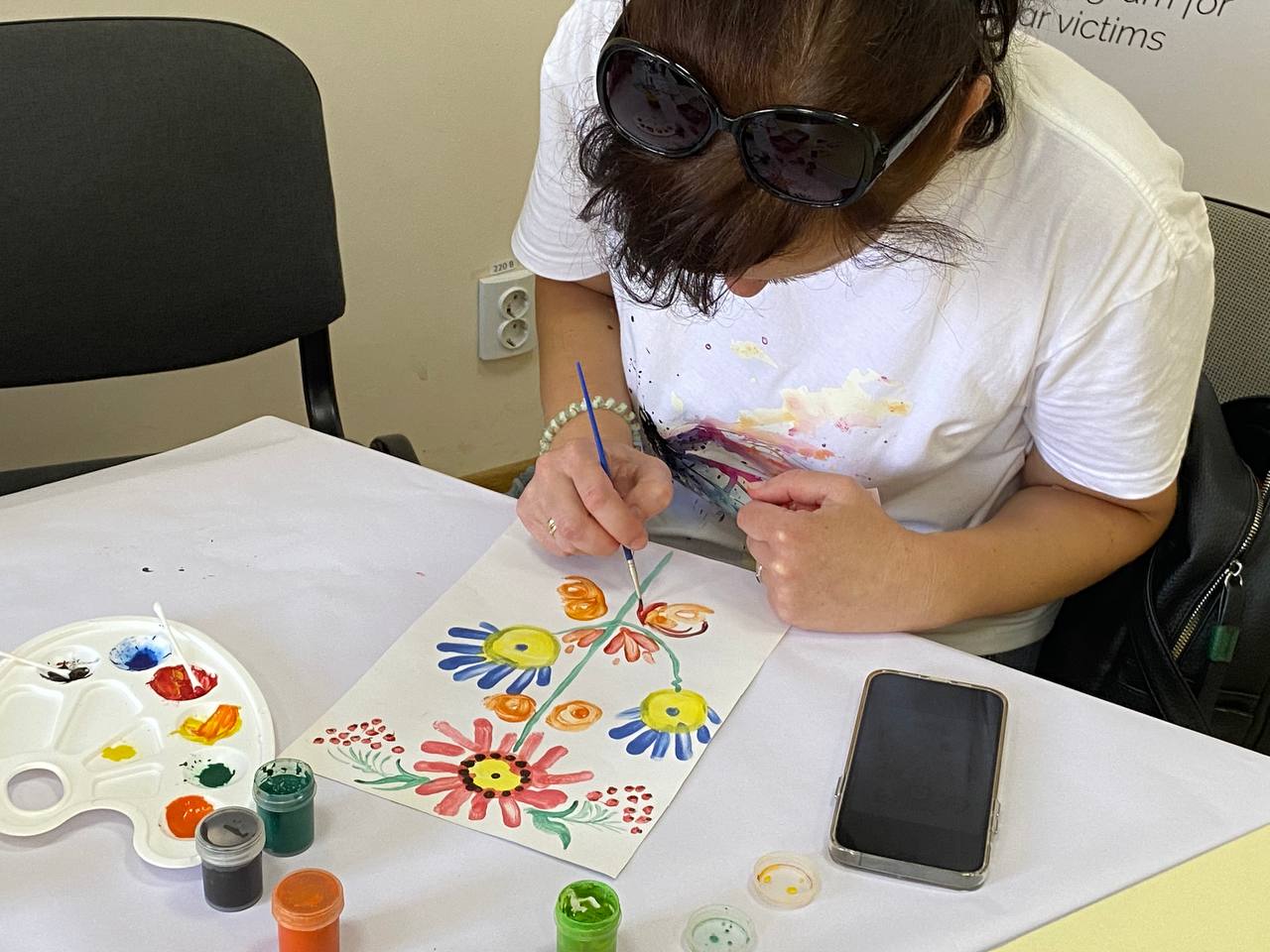
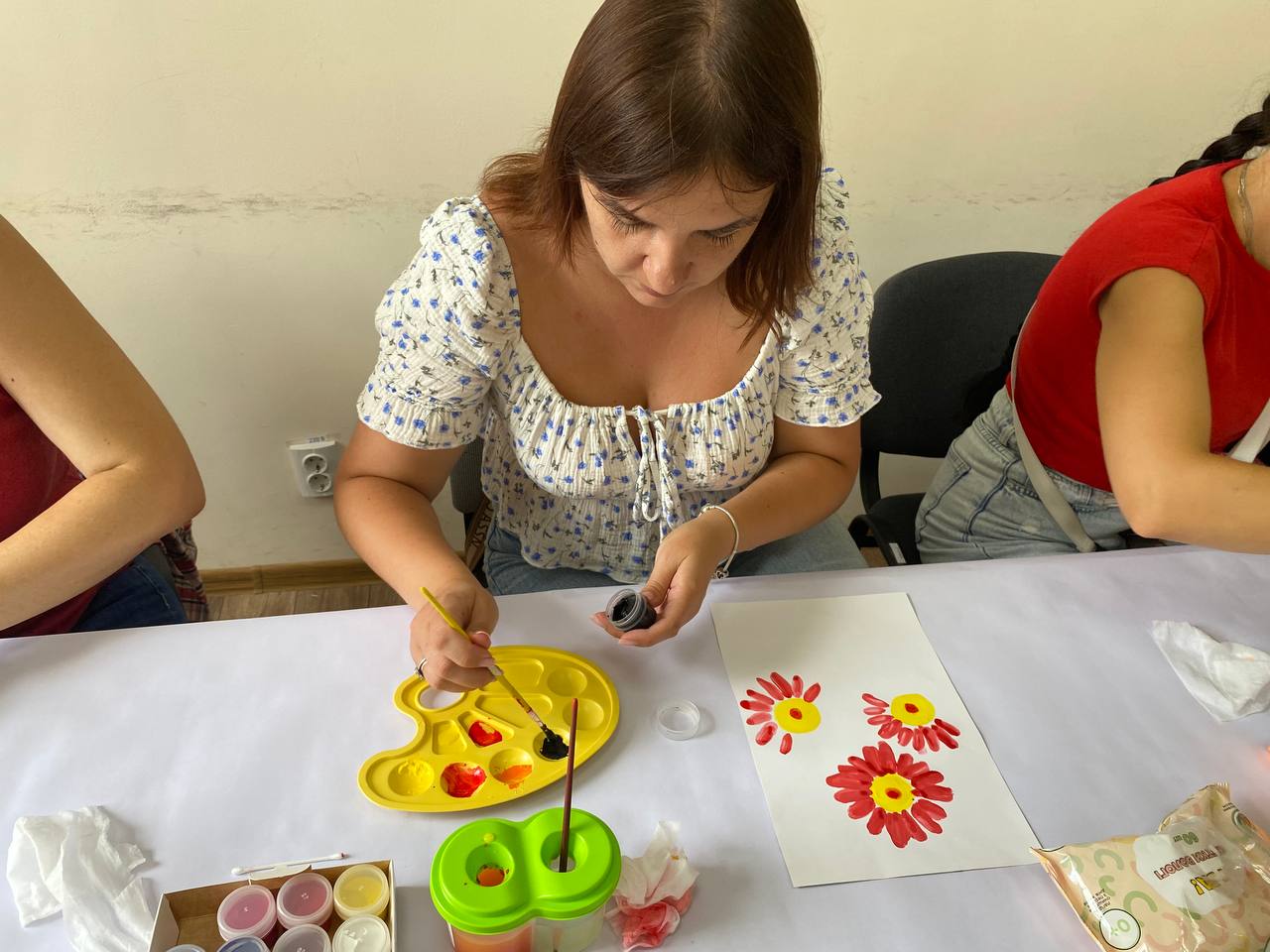
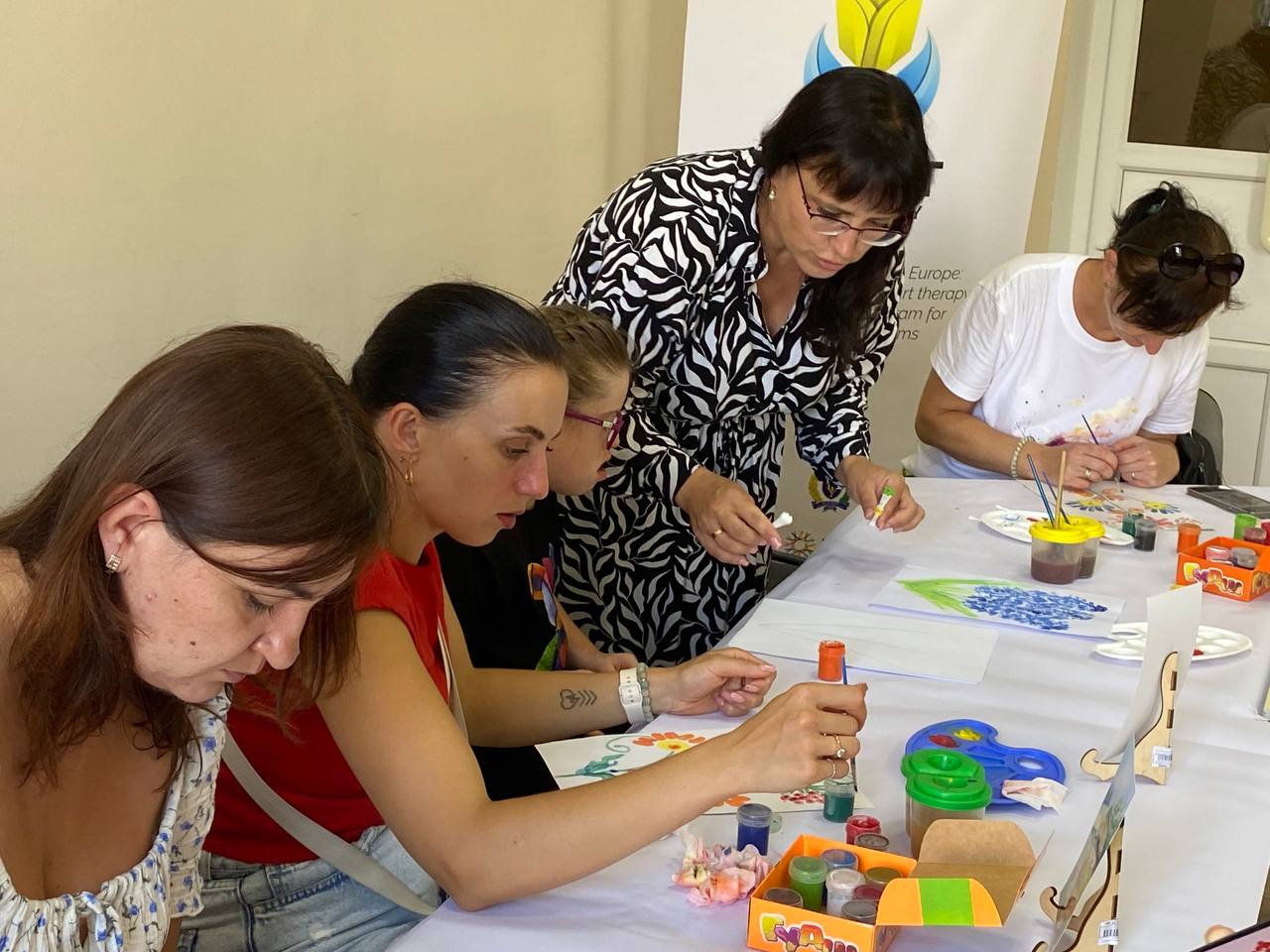
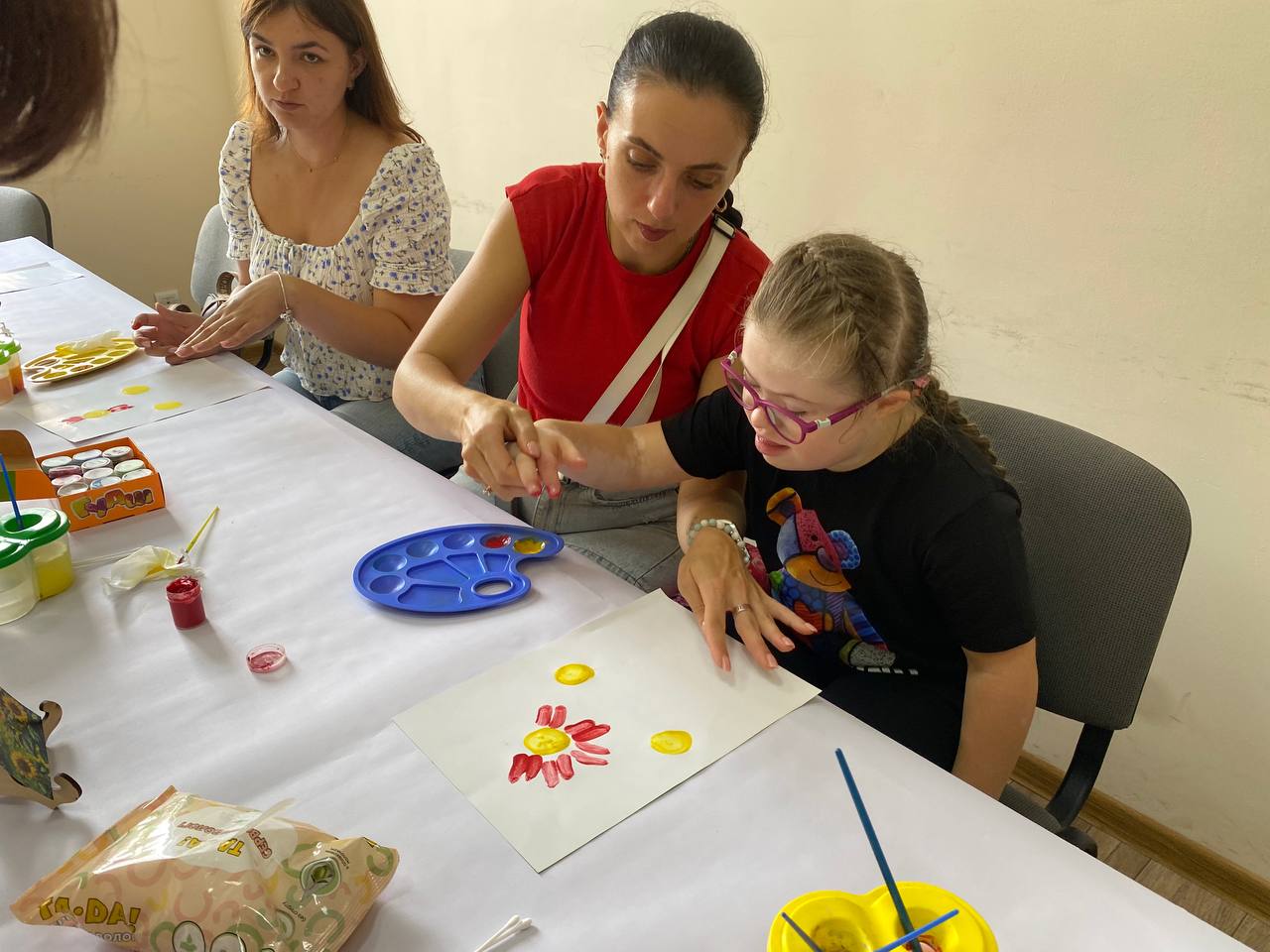
Such meetings not only provide psychological support but also strengthen internal connections, offering a sense of belonging and confidence that even in the darkest of times, we are capable of creating beauty, preserving warmth, and passing it on. Together with its partners, Poltava Polytechnic holds these healing sessions that bring relief and promote resource restoration. More sessions are planned within the TRUST project to continue supporting Ukrainian families through the power of art.
As a reminder, the faculty of Poltava Polytechnic can participate in academic mobility and internship programs. Students can study abroad through Erasmus+ credit academic mobility grant programs for a semester or a full academic year at leading universities in Austria, Greenland, Denmark, Estonia, Finland, France, Germany, Greece, Ireland, Italy, Latvia, Lithuania, Luxembourg, the Netherlands, Norway, Poland, Portugal, Romania, Slovakia, Spain, Sweden, and the Czech Republic.
For more detailed information on current internship, teaching, and academic mobility programs abroad, please get in touch with the International Relations Office (office 213-C, interoffice@nupp.edu.ua) or the coordinator of international activities at the National University “Yuri Kondratyuk Poltava Polytechnic” – Anna Pavelieva, Ph.D. in Philology, Associate Professor of the Department of Germanic Philology and Translation (email: kunsite.zi@gmail.com, phone: +38-(095)-91-08-192).
Media Centre of
National University “Yuri Kondratyuk Poltava Polytechnic”



